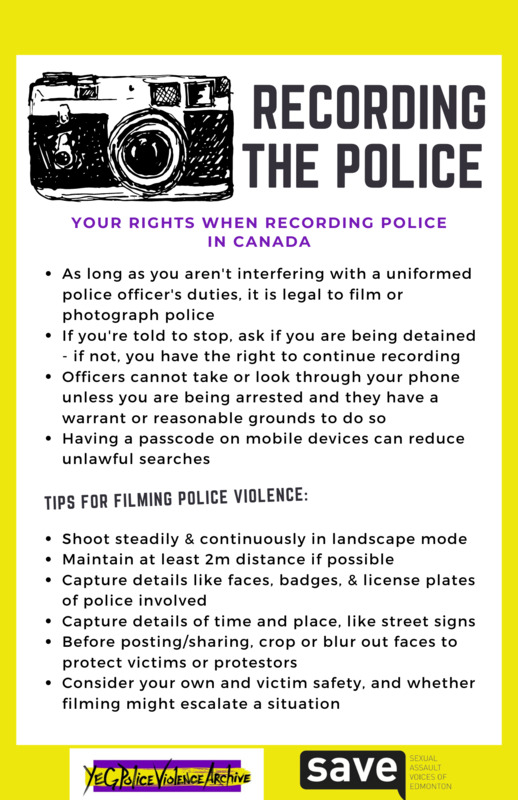Recording the Police
Videos, pictures, and audio recordings are a critical part of documenting police violence. But many people are unclear of their rights when recording the police, and police officers sometimes try to mislead bystanders about their rights, preventing lawful recording from taking place. Here you can find information about your rights in recording police activities in Canada, and tips for creating recordings that capture key information that might be helpful when seeking justice and accountability.
Per PEN Canada, “It is not a crime in Canada for anyone to photograph a uniformed police officer, as long as the photographer does not obstruct or interfere with the execution of their duties; and it is a violation of their Charter rights to prevent anyone from doing so.” The same applies to audio and video recordings.
Huffington Post provides a good overview of your rights when filming the police, and when and to what extent police can search your phone or recording device.
Teen Vogue provides a guide on strategies for protecting yourself and capturing pertinent information, although the legal information is US-specific.
Witness provides tips on filming the police. The legal information is US-specific but other advice - like the kind of things to capture in a recording, and filming in steady, continuous shots, are always applicable.
What rules must police follow to search a cellphone during an arrest?
The Montreal-based group Collective Opposed to Police Brutality has a guide last updated 2017 on your rights and recourse when dealing with police, but some of the information is Quebec-specific.
